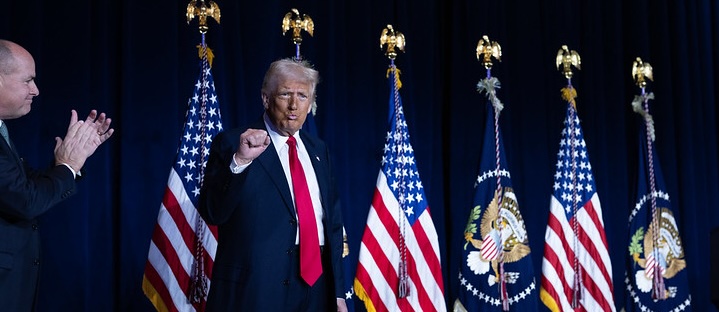Already a subscriber? Make sure to log into your account before viewing this content. You can access your account by hitting the “login” button on the top right corner. Still unable to see the content after signing in? Make sure your card on file is up-to-date.
President Donald Trump has confirmed that tariffs on imports from Canada and Mexico will go into effect next month after a month-long suspension.
Some shit you should know before you read: Back in January, the United States informed Canada and Mexico that it would impose 25% tariffs on nearly all imports and a 10% tariff on Canadian energy products, with President Trump citing concerns over trade imbalances, border security, and fentanyl trafficking as justification. In response, Canadian Prime Minister Justin Trudeau announced retaliatory tariffs of 25% on $155 billion worth of American goods, warning that Canada would not back down in defending its economy. In addition, Mexico vowed retaliatory tariffs. Despite this, Trump decided to delay the tariffs by 30 days in exchange for Canada and Mexico’s commitment to bolster border security and combat fentanyl trafficking. At the time, Trump said he would make a decision on future tariffs after 30 days.

What’s going on now: While speaking to reporters at the White House, President Trump confirmed that tariffs on imports from Canada and Mexico will go into effect next month after a 30-day suspension. He said that the tariffs are necessary to address issues related to illegal immigration and drug trafficking at the US borders, stating, “The tariffs are going forward on time, on schedule.” Trump argued that these measures are part of his broader strategy of imposing “reciprocal tariffs” to counter what he perceives as unfair trade practices against the United States.
The tariffs are expected to have significant economic implications, particularly for industries reliant on cross-border supply chains, such as the automotive and energy sectors. Parts of the US, including the Pacific Northwest and Northeast, depend heavily on Canadian energy imports, which would be directly impacted by the 10% duty on Canadian oil and electricity. Additionally, US manufacturers that source materials from Mexico may face increased production costs due to the 25% tariff. Despite this, Trump argues that the tariffs would stimulate domestic manufacturing and generate revenue, claiming, “Our country will be extremely liquid and rich again.”

A possible coalition? This comes as Canada’s Foreign Affairs Minister Mélanie Joly has confirmed she is working with European nations to build a “strong response” to tariffs the United States could impose on them. After wrapping up a trip in the EU, Joly said, “It was necessary for me to be in Europe to tell them exactly what’s going on, to make sure that we would coordinate on any form of response to tariffs, and that we would be together defending our national security and sovereignty.”






